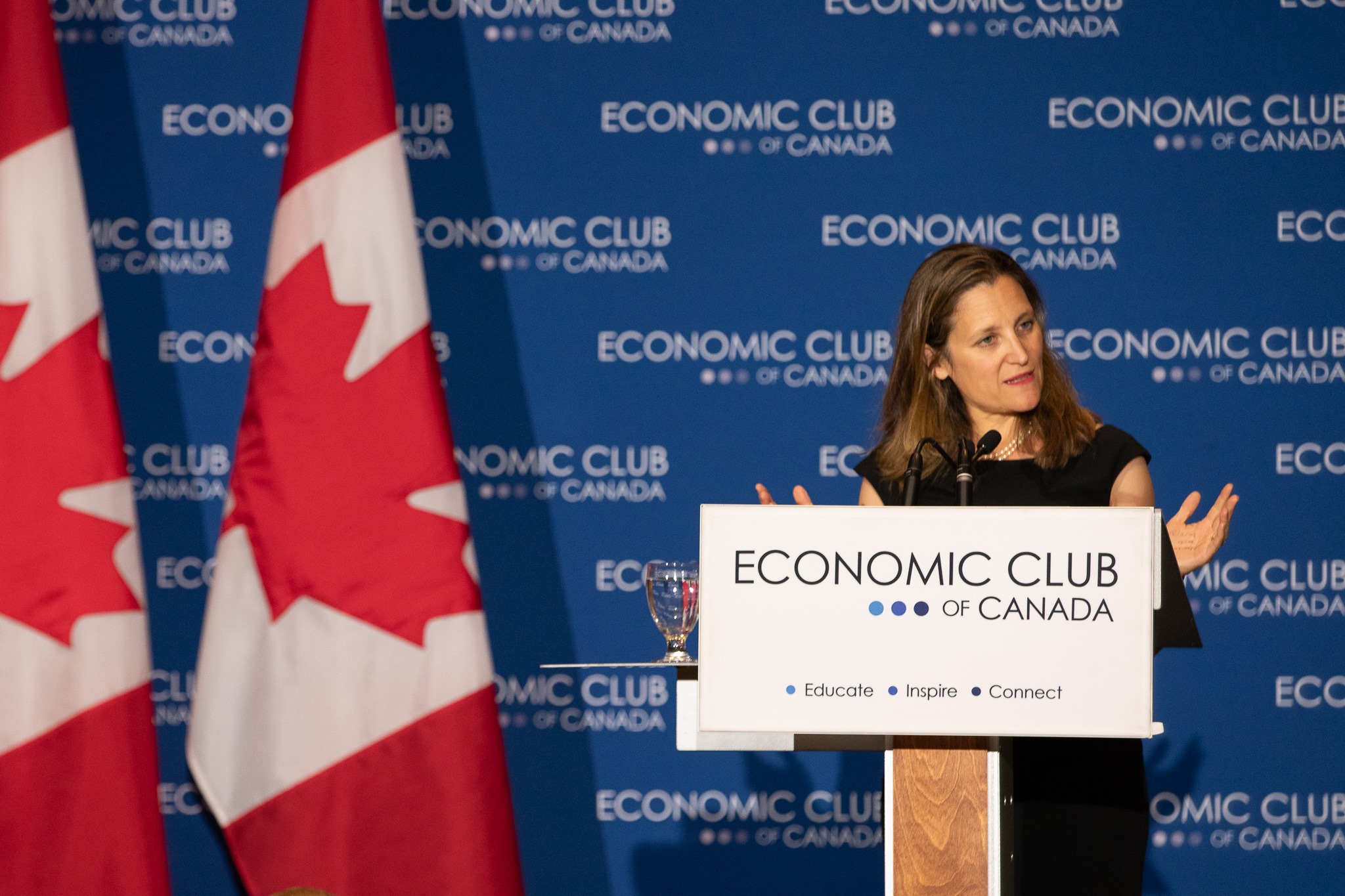Canada plans to spend $72.1 million to modernize the application processing system for immigrants and future citizens.
It also plans to invest $15 million over the next two years to upgrade the Foreign Credential Recognition Program and help skilled newcomers get jobs quickly.
The plans, outlined in the Fall Economic Statement presented by Finance Minister Chrystia Freeland on Monday aims to make immigration the cornerstone of Canada’s post-pandemic recovery next year.
It comes the wake of the federal government dramatically increasing its immigration quotas for the next three years which could see more than a million newcomers arrive at Canadian ports of entry.
The new immigration levels are fixed at a rate of about 1 per cent of the population of Canada, including 401,000 permanent residents in 2021, 411,000 in 2022 and 421,000 in 2023.
“Immigrants play an important role in driving Canada’s economic growth, contributing to half of the average real GDP growth over 2016-2019,” said Freeland when outlining the investments.
“Without immigration, Canada’s population would start to decline in slightly more than a decade and potential growth would slow to about 1 per cent per year,” she said.
Recognizing foreign credentials
Delivering on increased immigration levels will require that the system that supports application processing for immigration and future citizens – the Global Case Management System – be modernized, moving away from its current cumbersome paper-based system to a digital platform, said Freeland.
“This modern processing system will contribute to Canada’s world-class immigration system through enhanced client service, operational efficiency and program integrity, ensuring a higher level of service and internal capacity to bring the skills and talents of new Canadians to our communities,” she said.
The Fall Economic Plan statement said attracting talented workers from around the world is an essential part of the government’s plan to help support the economy’s recovery from the COVID-19 recession.
At the same time, the demand for professionals in key sectors, such as Information Technology (IT), is increasing in many regions across Canada, leading to a situation where there are skilled workers without quality jobs, and quality jobs without skilled workers.
The Foreign Credential Recognition Program helps address specific barriers faced by skilled newcomers, such as the length and cost of credential recognition, and has recently expanded its scope to provide direct employment supports.
To scale up and expand existing supports for the labour market integration of skilled newcomers with a focus on in-demand sectors, such as health, IT, and skilled trades, the government proposes to invest $15 million in 2021-22 in the Foreign Credential Recognition Program.
Up to 15,000 skilled newcomers are expected to benefit from this investment.
A multiple-award winning journalist, Fabian Dawson is an internationally acclaimed author, filmmaker and media expert. His work over the last four decades spans the globe and he also serves as a consultant/strategic advisor to a variety of international companies. As deputy editor-in-chief of The Province, part of the Postmedia chain, Dawson led initiatives within a special publications group to provide directed content for a variety of organisations. He was named the 2019 recipient of the Bruce Hutchison Lifetime Achievement Award at Jack Webster Awards. Dawson has been invited by the governments of India, Malaysia, Taiwan, China, Hong Kong and the United States to act as a media observer/advisor on a variety of Asian-Canada issues. Dawson, now operates FD Media, which specializes in harnessing editorial assets to revenue generating opportunities.





